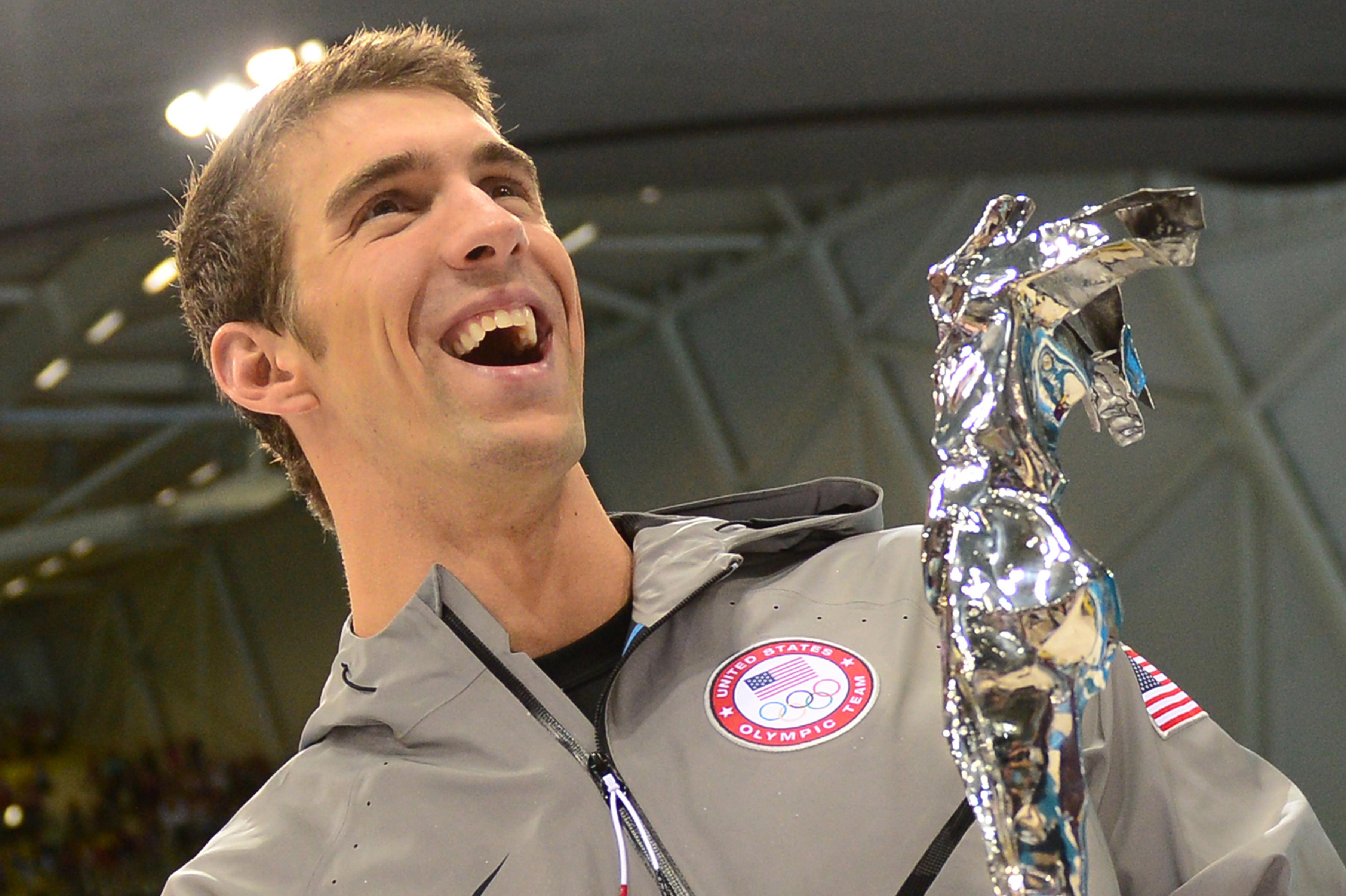For Michael Phelps, the Olympics began as a parable about the importance of hard work. In his first final of the 2012 Games, Phelps finished fourth in the 400-meter individual medley as Ryan Lochte streaked to gold. The man who never lost four years ago in Beijing explained that it was “just a crappy race”—that his competitors “swam a better race than I did, they swam a smarter race than I did. In the end, they were more prepared.”
The questions about Phelps’ preparation had started before the London Games. American backstroker Tyler Clary told a California newspaper that his U.S. teammate wasn’t putting in the laps. “I think it’s too bad,” Clary said. “I think the things he could have done if he’d worked as hard as I do would have been even more incredible than what he has pulled off.” That crappy 400 IM gave some heft to Clary’s self-pitying words. So too did Lochte’s powerful swim, which came—we were told in repeated NBC promotional spots—after he’d shaped up since 2008 by flipping tires, dragging chains, and cutting McDonald’s and Skittles out of his diet.
A week later, Big Mac avoidance doesn’t seem like the determining factor in Olympic success. In what he says was his final competitive race, Phelps swam the butterfly leg in the Americans’ victorious 4-by-100 medley relay on Saturday. That win ran his 2012 tally to four gold medals and two silvers and his career total to 22 medals, 18 of them gold—that’s double the gold haul of any other Olympian. And after that big loss in the 400 IM, Phelps got revenge on Lochte in the 200 individual medley. As Wayne Drehs wrote on ESPN.com two days ago, Lochte “put in the endless hours of grueling training to back up all the hype. Only there was one problem: He wasn’t Michael Phelps.”
We want to believe in stories like the one we were being fed about Ryan Lochte. The Lochte narrative is the easiest kind of story to understand, a redemptive sports arc with a beginning (the disappointment of always coming in second), a middle (the aquatic version of a Rocky-esque training montage), and an end (Olympic glory). The Phelps story, by contrast, always stood out for its lack of relatable humanity. Yes, he has a mom and sisters who hoot and holler for him in the stands. But this is a guy who swam without ever sinking. He was infallible, unbeatable, a Speedo-wearing creature born deep below the sea.
After the first few days of this Olympics, it seemed like Phelps might finally get sucked under—that he was flailing, and that we might learn something about him as we watched him thrash about in the water. But in the end, we learned what we already knew. Lochte had a great Olympics, winning two golds, two silvers, and a bronze. But no, he isn’t Michael Phelps, and that says less about Lochte—he has 11 Olympic medals, tied with Mark Spitz and Matt Biondi for second most of any male swimmer—than it does about the man he could rarely match. It also reveals that, for the best of the best, that truism about there being no substitute for hard work isn’t necessarily true. Being the greatest swimmer of all time, it turns out, can be a pretty effective substitute.
Phelps wasn’t trying to coast to victory. He acknowledged in recent days that he put every ounce of effort into the 2008 Games. This time around he made a conscious effort to do less. Tyler Clary was half right: Phelps wasn’t trying as hard as he could, but he wasn’t cheating himself or anyone else. He’d already gotten the most out of his abilities. This time, he wanted to see what would happen in the pool and in his life if he gave 95 percent, and he was willing to accept the consequences.
On the two occasions when he lost in London, Phelps said he’d gotten what he deserved. First was the 400 IM, where he talked about not being prepared. Next was the 200-meter butterfly, the race in which he got nipped at the wall by Chad le Clos. In an interview with Bob Costas, he said he got out-touched because he’d been “touch[ing] kind of lazy” in practice. “In 2008, everything was exactly perfect at the right exact time of every single moment of every day,” he continued. “Over the last four years, yes, we have prepared a little bit differently, and I understand that. … The decisions that I made over the last four years were the decisions that I made. And, you know, I’m OK with it. I’m just going to have some fun.”
But when you’re Michael Phelps, there are limits to the consequences you’ll suffer for your lassitude. On Friday, Phelps swam the last individual event of his Olympic career. As NBC’s Dan Hicks described it, the 100-meter butterfly has been “the diciest of Phelps’ individual events throughout his career.” In 2004, he won gold by four-hundredths of a second. Four years ago, he was victorious by an even slimmer margin, beating Milorad Cavic on that famous final half-stroke.
This time around, he was seventh after the first 50. But he devoured the field in the back half of the race, chasing down Cavic and everyone else until he’d reached the front. Just as in the 200-meter fly, he glided into the wall. But this time it didn’t matter. Michael Phelps could coast for as long as he wanted, because he was too far ahead, and nobody was going to catch him.
